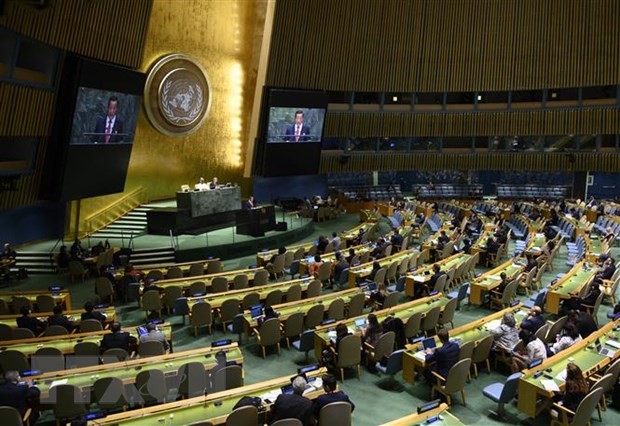(VOVWORLD) - The UN General Assembly last week elected 5 non-permanent members to the UN Security Council for the 2021-2022 term. The new term won’t begin until next year, but the Council and its newly-elected members – India, Mexico, Norway, Ireland, and Kenya – are already aware of challenges and expectations.
 A UN General Assembly meeting in New York on September 30, 2019 (Photo: AFP/VNA) A UN General Assembly meeting in New York on September 30, 2019 (Photo: AFP/VNA) |
Becoming a non-permanent member of the Security Council is an honor, but also a huge responsibility. The Security Council is responsible for assessing the level of threat to global peace of any act of sabotage or invasion, making recommendations to UN member states, and deciding on appropriate measures to maintain or restore international peace and security. Decisions and resolutions of the UNSC are usually binding on all UN members.
Challenges
The newly-elected UNSC members will face long-standing problems stemming from conflicting views and interests and vying for influence among the 5 permanent members – the US, the UK, France, Russia, and China. Disagreements between the permanent members were put into sharp relief by their inability to coordinate their responses to the Covid-19 pandemic. Last year the UNSC ratified just 67 decisions, the lowest figure since 1991.
The new UNSC members will also have to deal with tensions and violent conflicts in the Middle East, Africa, and Northeast Asia as well as global climate change.
One of the biggest challenges will be resolving the Covid-19 pandemic, whose end is not yet in sight. Analysts agree that the pandemic could have grave consequences for global peace and security and is certain to be high on next year’s UNSC agenda.
Expectations
Despite the obvious challenges, the world expects the Council to preserve global peace. The non-permanent members can help by narrowing differences within the Council through regular meetings attended by UN Secretary General Antonio Guterres.
If the UNSC cannot reach a consensus on an important matter, non-permanent members can issue a joint statement expressing their views, as they did last November about Israel’s occupation of the West Bank and in May about the UNSC’s working methods.
The 5 newly-elected Council members have held this position before, specifically India has served 7 terms, and are prepared to handle the challenges and make practical contributions to maintaining peace and stability in the world.